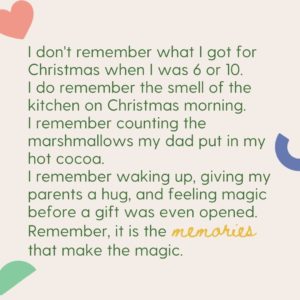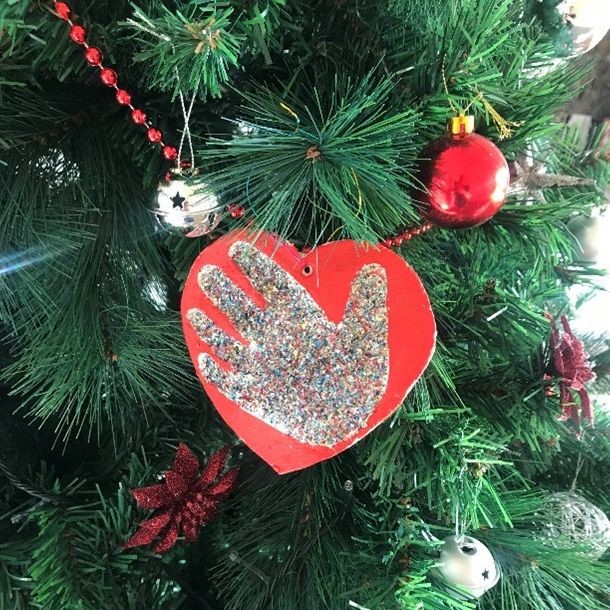Season’s Greetings
As the festive season approaches, it’s natural to start to reflect on the year that’s been, and it’s been a BIG year of firsts for the team at Tiny Nation!
In creating Tiny Nation, we’ve set out to change the way that home-based early learning is delivered and supported.
We are the first nationwide home-based provider to only work with qualified educators and teachers. We want to walk the talk around what quality early learning experiences look like and focus on what we know to be best for our tiniest learners – connected relationships in nurturing home environments.
We’ve seen our vision come to life with our founding educators in each of our regions embodying everything that we’re about at Tiny Nation. Watching them engage with our children using heart-based practices and respectful, responsive communication has just reinforced for us the importance of taking home-based early learning into the future with a dynamic and supportive new model.
We’re so excited for everything that 2021 holds for our children, educators and wider organisation. We believe that we are truly here in the right place at the right time with the right team to be a positive force for change in home-based early learning.
So, as we near the end of the year, we want to thank you all for coming along on this journey with us. You’re getting this email because you’ve taken the time to connect with us, or because you’re already a part of our community as a partner, founding educator or family. Either way, you’ve been a part of starting to build our Tiny Nation and we’re pretty chuffed to have you along for the ride.
Over the past 12 months we’ve recruited an incredible team of passionate people (both in support staff and educator roles), co-created our Kaupapa and programme events, been through Ministry licensing, established collaborations and partnerships with industry experts, celebrated our launch in new regions, and met with a lot of educators and families.
PHEW!
It’s been a great ride so far and we are looking forward to a bit of rest and relaxation over the holiday period so that we can kickstart 2021 with a bang!
We wish you and your families a very merry Christmas. Christmas isn’t a season, it’s a feeling. We’ve loved enjoying the feeling of Christmas with our children and educators – seeing Christmas through the eyes of a child is so special and they are a constant reminder of the magic, fun and excitement that the season brings.
Ngā mihi o the kirihimete me to tau hau
Greetings for the Christmas and the New Year
Erin Maloney and the Tiny Nation Team


Christmas Craft – Salt Dough Ornaments
My son, Mr. Gus (5), made me an adorable salt dough handprint Christmas tree ornament last week. It’s a lovely keepsake and has pride of place on our tree. Salt dough is easy to make and something that can be used for craft all year round!
Ingredients:
1 cup of salt
1 cup of plain flour
Up to 1 cup of water (add gradually)
Method:
Combine the salt and flour then pour in the water gradually, stopping when it has become dough-like and not too sticky. There should be no residue left on your fingers when you touch it.

Knead it on a floured surface for a few minutes to make it soft, workable and stretchy, like you would with any dough. This step is wonderful for strengthening those small hand muscles essential for writing and cutting!
Once made and rolled out, you can choose from cookie cutters or simply cut the dough in the shape you want. Gus chose to press his hand into the salt dough to make a mould. Use a straw to poke a hole at the top of the cut decoration so that ribbon can be threaded through to hang later.
Lay them on greaseproof paper and on a baking tray. Cook them on a very low heat (around 100 degrees) for up to 3 hours. If the shapes are over 1cm in thickness, they will probably need to be turned over during cooking.
Once cooked and cooled, they can be decorated with paint, glue and glitter.
For more information and resources on salt dough ornaments, click here.
Links to Te Whāriki: Play Dough can be used to support learning across all strands of Te Whāriki. In particular, developing capability with dough and clay supports the exploration strand, where children gain confidence and control of their own bodies, including active exploration with all the senses and the use of tools, materials and equipment to extend skills.
Children can:
- Develop hand and eye coordination – squeezing, patting, pounding
- Develop finder and hand muscles – poking and pinching
- Be creative and learn about texture, shape and form
- Manipulate through rolling, cutting and making shapes
- Socialise with others
- Express ideas

